Life in the mountain is peaceful and carefree, attracting new immigrants and youngsters to stop over and settle down. They grow fruits and vegetables by themselves, promote education of food and agriculture, and bring happiness to themselves and others.
Located in Shengxing and Longteng Village of Sanyi Township, Miaoli, the leisure agriculture region is named “Old Mountain Line” because of the railway that passed through the area in early days. The major agricultural products of local mountain regions include tea seed oil, pickled vegetables, pickle greens, preserved vegetables, peaches, plums and tangerines. To popularize native Hakka culture and agricultural specialties, small-holder farmers initiate the activity of “drying pickled greens in the sun”, into which the idea of “public display of happiness” is integrated to develop leisure tourism. After that they establish “kitchen for displaying happiness” where food and agriculture education is promoted, together with the institution of villagers commune, which agglomerates into the harmonious coexistent “slow city”, based on the belief of peasants’ slow-paced life. Thus “slow city, peasant, and public display of happiness” becomes their common goal. For experiencing the downshifting lifestyle and happiness of rural village, Old Mountain Line is definitely the best choice.
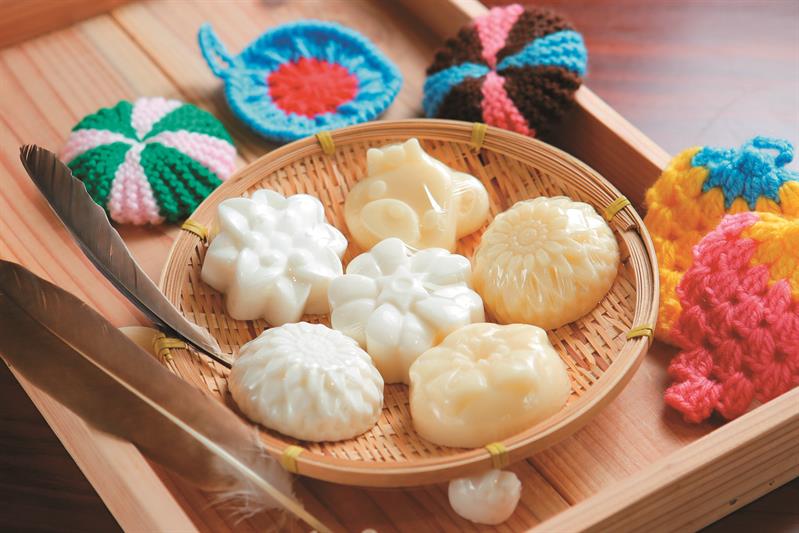
Happy and downshifting natural farm
Hoka in Sanyi is the most popular landmark that hides in the midst of the valley nearby Longteng Broken Bridge in Old Mountain Line area. Stepping on the field path which leads to Hoka in Sanyi, it is like inquiring after the peach garden that people who enjoy simple downshifting lifestyle are inevitably attracted to the spot to experience the happiness of slow living together with the owner of Hoka in Sanyi, who also has a taste for nature and pastoral life. Liao, Yu-Hsien, the landlady of Hoka in Sanyi who had been engaged in photography, travelled to the countryside in Nagano, Japan for work exchange and clerkship. There she experienced farming, which helped forward the determination of her returning hometown to start a farm business with her parents. “The vegetables and coffees planted by Hoka in Sanyi are fertilizer-free and pesticide-free. The more naturally you grow, the better produce you can gain,” she explained.
Hoka in Sanyi attaches great importance to food and farming education. It is expected that visitors will be allowed to learn about the origin of food through farm tour. DIY programs offered by Hoka in Sanyi involve bringing visitors to the vegetable garden to pick vegetables. Liao, Yu-Hsien said, “The vegetables we serve to our customers are freshly-harvested. Visitors can also try to get acquainted with the land, the plants and the ingredients during the process.” Furthermore, through coffee roasting DIY program, visitors are instructed the how of beans roasting, tips for making pour-over coffee and coffee tasting. Hoka in Sanyi is willing to spend more time on teaching the procedures and showing the correct brewing skills so that the participants will be able to sample the coffee as delicious as the one they drink on the farm when they return home. This is exactly the slow food and slow living idea promoted by Sanyi Cittaslow. In other words, the simple and happy downshifting lifestyle extended by Hoka in Sanyi has earned recognition and support from many aficionados.
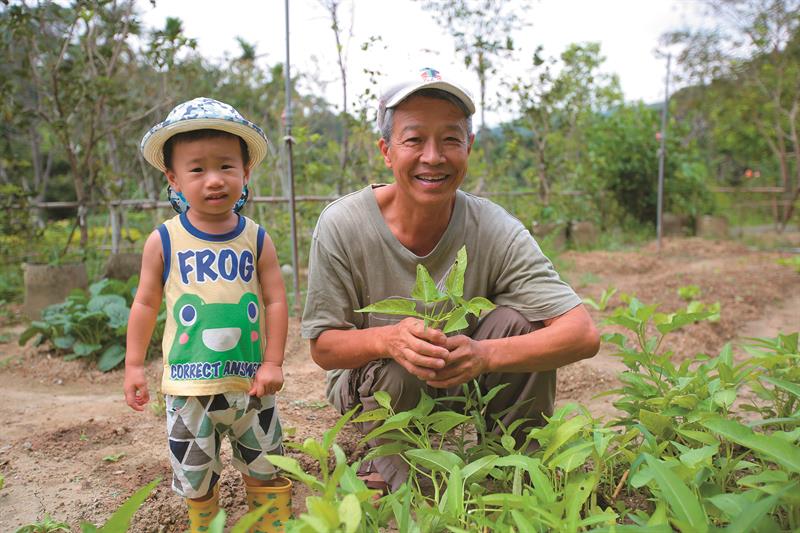
Relish the authentic native tasting menu
Being originally a proprietor of a restaurant in Taichung, Chiu, Che-Chuan, the landlady of “Che Chuan Meng Tian”, enjoyed visiting Sanyi for getting some fresh air outside of work. Having fallen in love with the mountain forests and fields, she decided to purchase a land in former mountain line area to develop agricultural recreation. She realized step by step the operating model of Che Chuan Meng Tian upon gaining encouragements and praises from friends and visitors later on. Though originating from a Hakka family and catering business, Chiu, Che-Chuan does not make much of Hakka cuisine at Che Chuan Meng Tian. She assumes that the dishes should be made by utilizing the freshest native ingredients as long as coming up on the mountains. Therefore, a happy farm where homegrown fruits and vegetables are planted and free-range chickens and layers are raised is built on Che Chuan Meng Tian. Preserved vegetables, floating ferns and pumpkins cultivated by small-holder farmers from local area are the ingredients used for making dishes. The meal served at Che Chuan Meng Tian is the so-called tasting menu which puts great emphasis on freshness and original flavor. Signature dishes such as pork steamed with pickle vegetables, duck with mixed vegetables, crispy fried fish with lemon, rice cake with Sergestid shrimps and etc. are all well-received.
Chiu, Che-Chuan expects that all her customers can make themselves at home when they visit the farm. Visitors are welcome to have a chat, taste tea and enjoy the happiest moments at Che Chuan Meng Tian.

Hakka delicacies created by farmer ingredients
“Legend of the Mountain”, from where one can overlook the magnificent view of Sheng Hsing railway station, was the orchard of the Peng’s during early years. In the year of 2020 when the crowd of tourists began to flood into Sheng Hsing railway station, Peng, Cheng-Chun, who had been working in other locality, decided to return home to set up his own “Legend of the Mountain” with the railroad tie and Tung blossoms as its theme. Having a great affection for his hometown, Peng, Cheng-Chun, the incumbent director-general of Old Mountain Line Leisure Agriculture Region, bears in mind always the peasants back home. “Since we are suffering from a continual brain drain of the youngsters, there leaves only the elderly peasants who wish to stay to protect their homeland. We have to assist them with selling their agricultural products,” said Peng, Cheng-Chun. In the future, “Legend of the Mountain” will focus on promoting Hakka hamburger, pizza, to create Old Mountain Line’s exclusive Hakka flavor by using wood-fired bread and pastry stuffed with peasants’ Meigan cai (molded dried vegetable), leaf mustard, dried radish, pork belly and etc. What make Legend of the Mountain more interesting are the DIY programs: Hakka lei-cha, mochi (rice cake) pounding and clay pinching. Coffee is also planted on the farm. Come and warm your heart and stomach by sipping a cup of coffee or Hakka pounded tea in the misty mountain area of former mountain line like the Hakka people.
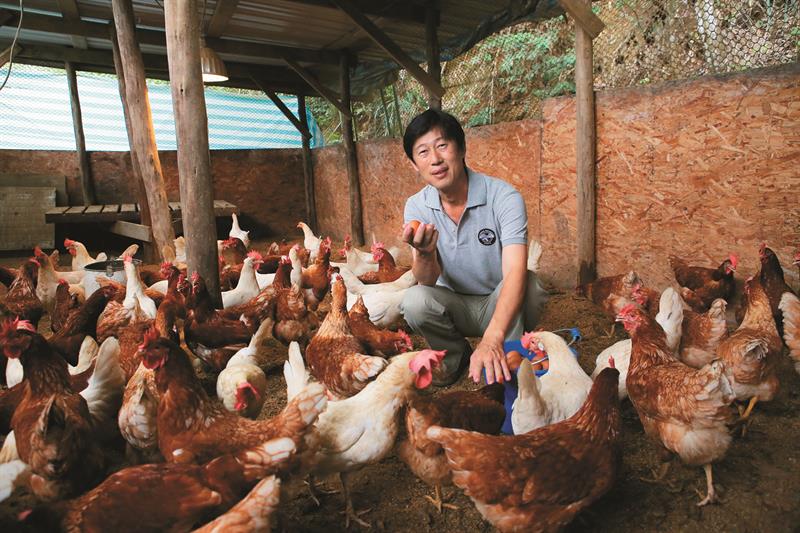
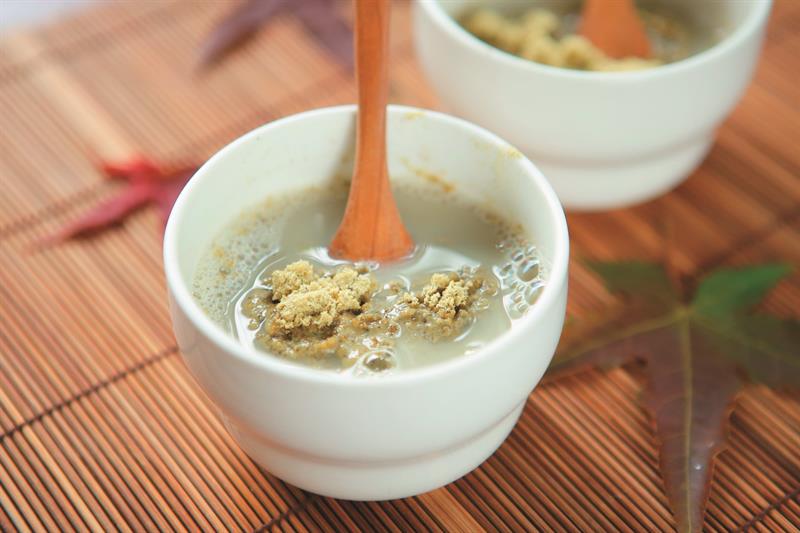
Return to the hometown for introducing the bliss of oven-baked bread
Located deep in the green forests of Old mountain line, “Bei Yan Jiu Farm” is formed by the centennial residence of Chiu’s family. The name of the farm derives from the shell fossils discovered at the back of the old house. Chiu, Pi-Yi, the owner of Bei Yan Jiu had once been a bread apprentice for a short period in his youth. He returned to his hometown where he resumed craftsmanship and put up a wood-fire oven to make breads and share with neighbors after retirement. Thanks to the impressive taste, many people were attracted to purposely come for the purchase and inadvertently built up the reputation for Bei Yan Jiu’s oven-baked bread. Starting a farm business was the idea come up by Chiu, Pi-Yi’s son Chiu, Cheng-Pin. When he returned to his homeland and discovered that there were many solitary elderlies who were unable to sell the produce although being capable of growing their own fruits and veggies, he began to reflect on the possibility: “What if we try to integrate these awesome ingredients into our breads? Then the breads sold by Bei Yan Jiu will become beneficial for the elderlies.” Thus Bei Yan Jiu starts to use native ingredients and launch highly-appraised oven-baked breads including the freshly-harvested melon, Taiwanese-style salty shallots, anka smoked longan and ruby Roselle flavor. Chiu, Cheng-Pin insists that there is no way for Bei Yan Jiu to sell its breads upon delivery as he hopes that customers can walk into the store and know more about the environment in person. For this reason he initiates oven-baked bread DIY program, allowing visitors to come to Bei Yan Jiu and make and bake breads by hands so as to propagandize food and agriculture education. Meanwhile, he is also quite enthusiastic at building the ecological environment for his farm while taking in charge of ecological guiding interpretation. The natural, secluded and refined environment has made the farm extremely popular among the tourists. There is an inscription on the main gate of Bei Yan Jiu that reads “invite the youngsters to come home and enrich our people”, describing not only the present condition of Bei Yan Jiu but also the promising future for former mountain line.
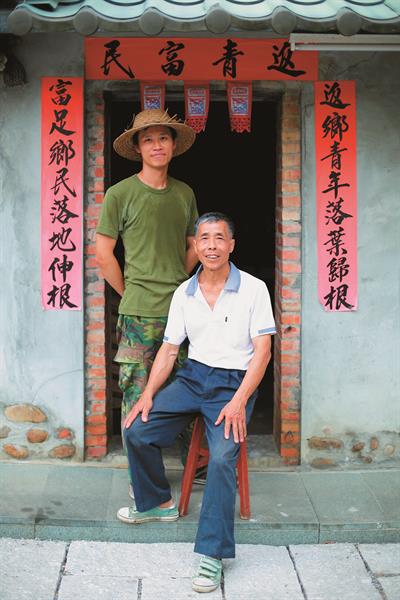
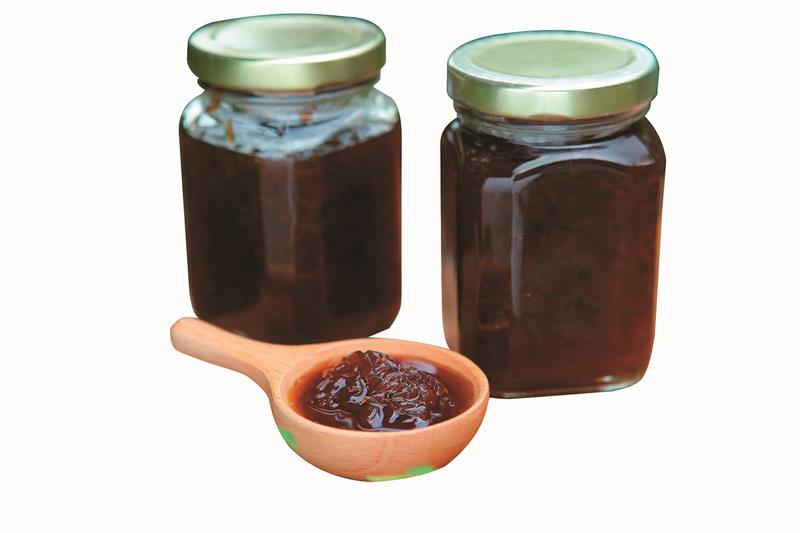

Heart-healing green ecology of the field
Cheng, Hui-Kun is another contributor who works hard on “inviting the youngsters to come home for enriching the people” in Old mountain line area. He has been busily engaged in developing the ideal countryside by planting autumn maple trees and Taiwan pines on open grounds over the last ten years. Not only have the trees grown luxuriantly into forests, both of his sons Cheng, Chiao-Tse and Cheng, Ti-Yang are also married and have taken over the business of “SUN HOUSE” and “Wood Time Café”. Showing respect for nature, SUN HOUSE maps out an ecological area where tung flowers bloom in April and the lively debut of Aquatica ficta accompanied by Gunther's frogs in firefly season from May to June. In addition, the wooden tables and chairs and the painted lacquer that reflect the natural, simple and unadorned nature of the owners on the walls inside the guesthouse are the ingenious creation of the father and sons. Wood Time Café is probably the most eye-catching spot within the entire field. This wooden coffeehouse designed by Cheng’s father and sons presents fully the European-style atmosphere and charisma through its white wall, inclined roof and the dazzling garden filled with plants and flowers. Adorned with bright and brilliant colors, the interior space of Wood Time Café is spacious, together with light meals, refreshments and coffee served. Zheng Di Yang, the owner of the shop tends to not only carry out tirelessly all carpentry works but also prepare all dishes and foods by himself: menus such as coffee, breads, waffles and caramel pudding are all his representative masterpieces. Being skillful with his hands, Cheng, Ti-Yang is also apt at latte art that he is able to create more than 20 kinds of coffee patterns. The ambience formed by nature, carpentry art and the fragrance of coffee generates the depth of calm and static life. Visitors can feel totally relaxed and enjoy the most pleasing and unrestricted hours as if having escaped from the mundane world once entering Wood Time Café.
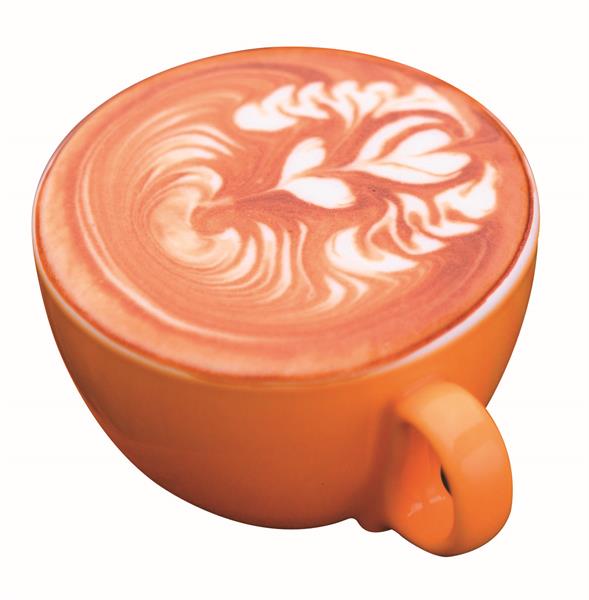
.jpg)